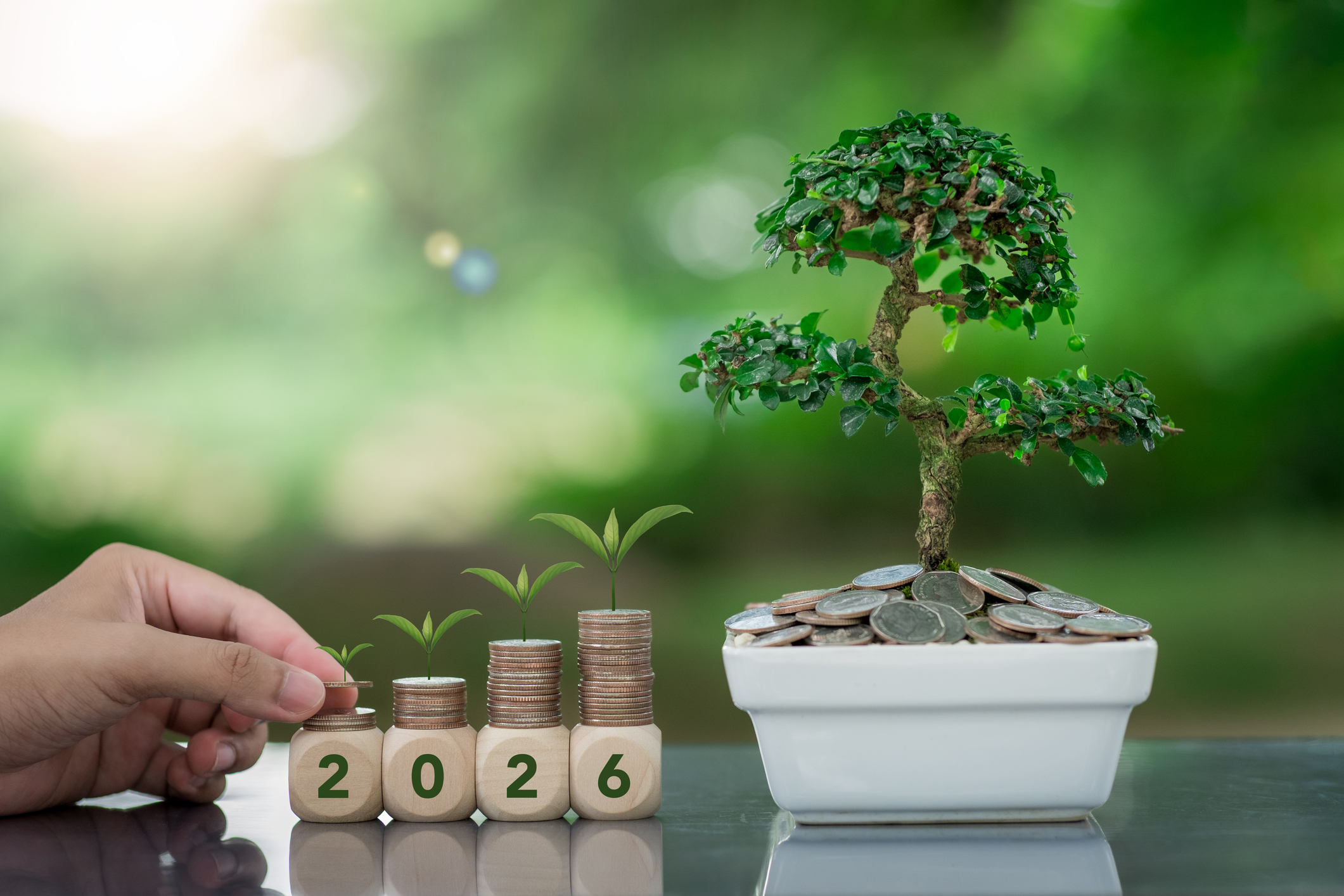CD vs. High-Yield Savings Account: Which is Better?
Deciding between a CD and a high-yield savings account? Here's how to choose based on your savings goals.

Erin Bendig
Profit and prosper with the best of Kiplinger's advice on investing, taxes, retirement, personal finance and much more. Delivered daily. Enter your email in the box and click Sign Me Up.
You are now subscribed
Your newsletter sign-up was successful
Want to add more newsletters?

Delivered daily
Kiplinger Today
Profit and prosper with the best of Kiplinger's advice on investing, taxes, retirement, personal finance and much more delivered daily. Smart money moves start here.

Sent five days a week
Kiplinger A Step Ahead
Get practical help to make better financial decisions in your everyday life, from spending to savings on top deals.

Delivered daily
Kiplinger Closing Bell
Get today's biggest financial and investing headlines delivered to your inbox every day the U.S. stock market is open.

Sent twice a week
Kiplinger Adviser Intel
Financial pros across the country share best practices and fresh tactics to preserve and grow your wealth.

Delivered weekly
Kiplinger Tax Tips
Trim your federal and state tax bills with practical tax-planning and tax-cutting strategies.

Sent twice a week
Kiplinger Retirement Tips
Your twice-a-week guide to planning and enjoying a financially secure and richly rewarding retirement

Sent bimonthly.
Kiplinger Adviser Angle
Insights for advisers, wealth managers and other financial professionals.

Sent twice a week
Kiplinger Investing Weekly
Your twice-a-week roundup of promising stocks, funds, companies and industries you should consider, ones you should avoid, and why.

Sent weekly for six weeks
Kiplinger Invest for Retirement
Your step-by-step six-part series on how to invest for retirement, from devising a successful strategy to exactly which investments to choose.
If you're looking for a place to store and grow your savings, you have multiple options. Two popular choices are certificates of deposit and high-yield savings accounts.
Both offer you rates that outpace inflation. Outside of that, they do have distinct differences you'll want to keep in mind when choosing which one works best for your needs.
With these things in mind, we'll take a look at the features of each and what to consider before signing up. That way, you find the right one to grow your savings.
When to choose a CD

A certificate of deposit (CD) is a type of savings account that holds a set amount of money for a fixed period, ranging anywhere from 3 months to 5 years. Unlike high-yield savings accounts, you won’t be able to withdraw cash from a CD before its maturity date. Doing so will result in fees that can offset any interest earned (unless you have a no-penalty CD account).
Furthermore, CD rates offer higher rates than on traditional savings accounts from brick-and-mortar banks, and in many cases, some of the best CD rates on the market feature an APY of over or around 4%.
Another notable aspect of CDs is that interest rates are locked in when opening a CD account, meaning if the Federal Reserve decides to cut interest rates this winter, it won't impact your term if you sign up now.
Use this Bankrate tool to find a CD term that works for you:
Because your money is locked away for a fixed time, CD accounts aren't good options for cash you may need quick access to, like money in an emergency fund. What CD accounts are good for is saving for a particular goal, such as a future purchase, like a new car, or an event, like a wedding.
For example, if you know you’re going to buy a car in three years, opening a three-year CD can help build your savings with minimal effort, thanks to compound interest, and also help you resist the temptation to spend your cash.
CDs offer a fixed, predictable rate of return on your savings. Our savings calculator tool can help you determine just how much you’ll earn in compound interest once your CD reaches maturity.
When to choose a high-yield savings account

A high-yield savings account functions in the same way as a traditional savings account, but with one main difference: High-yield savings accounts pay a higher-than-average APY on deposits.
In fact, many of the best high-yield savings accounts offer well over 4%. However, unlike CDs, rates on high-yield savings accounts are not fixed, meaning if the Fed cuts rates again in the future, your savings rate will drop as well.
As with CDs, before opening a high-yield savings account, be sure to review any fees or balance requirements associated with the account.
You can shop around and find the right account quickly, using this Bankrate tool:
There’s no term length associated with a high-yield savings account, as funds in the account are readily accessible. Unlike CDs, you won’t be charged a fee for withdrawing your cash.
Because of this, high-yield savings accounts are better suited towards savers who want quick access to their money, should an emergency arise.
They are also convenient for savers looking to add regular deposits. You can set up automatic transfers from your checking account to your savings to meet future goals.
Bottom line on CD vs. high-yield savings accounts
Both options help you grow your money and outpace inflation. CDs work best if you can put aside a portion of your money and not touch it for a specified time. They're also wise choices for savers looking to lock in a high rate if the Fed cuts rates more this year.
Meanwhile, high-yield savings accounts are better for people who want to earn a high rate of return, but also need quick access to their cash. In either case, make sure to shop around to find the best rates, and pay close attention to any fees associated with the account.
Related Content
Profit and prosper with the best of Kiplinger's advice on investing, taxes, retirement, personal finance and much more. Delivered daily. Enter your email in the box and click Sign Me Up.

Sean is a veteran personal finance writer, with over 10 years of experience. He's written finance guides on insurance, savings, travel and more for CNET, Bankrate and GOBankingRates.
- Erin BendigPersonal Finance Writer
-
 The New Reality for Entertainment
The New Reality for EntertainmentThe Kiplinger Letter The entertainment industry is shifting as movie and TV companies face fierce competition, fight for attention and cope with artificial intelligence.
-
 Stocks Sink With Alphabet, Bitcoin: Stock Market Today
Stocks Sink With Alphabet, Bitcoin: Stock Market TodayA dismal round of jobs data did little to lift sentiment on Thursday.
-
 Betting on Super Bowl 2026? New IRS Tax Changes Could Cost You
Betting on Super Bowl 2026? New IRS Tax Changes Could Cost YouTaxable Income When Super Bowl LX hype fades, some fans may be surprised to learn that sports betting tax rules have shifted.
-
 How Much It Costs to Host a Super Bowl Party in 2026
How Much It Costs to Host a Super Bowl Party in 2026Hosting a Super Bowl party in 2026 could cost you. Here's a breakdown of food, drink and entertainment costs — plus ways to save.
-
 3 Reasons to Use a 5-Year CD As You Approach Retirement
3 Reasons to Use a 5-Year CD As You Approach RetirementA five-year CD can help you reach other milestones as you approach retirement.
-
 How to Watch the 2026 Winter Olympics Without Overpaying
How to Watch the 2026 Winter Olympics Without OverpayingHere’s how to stream the 2026 Winter Olympics live, including low-cost viewing options, Peacock access and ways to catch your favorite athletes and events from anywhere.
-
 Here’s How to Stream the Super Bowl for Less
Here’s How to Stream the Super Bowl for LessWe'll show you the least expensive ways to stream football's biggest event.
-
 The Cost of Leaving Your Money in a Low-Rate Account
The Cost of Leaving Your Money in a Low-Rate AccountWhy parking your cash in low-yield accounts could be costing you, and smarter alternatives that preserve liquidity while boosting returns.
-
 This Is How You Can Land a Job You'll Love
This Is How You Can Land a Job You'll Love"Work How You Are Wired" leads job seekers on a journey of self-discovery that could help them snag the job of their dreams.
-
 We Inherited $250K: I Want a Second Home, but My Wife Wants to Save for Our Kids' College.
We Inherited $250K: I Want a Second Home, but My Wife Wants to Save for Our Kids' College.He wants a vacation home, but she wants a 529 plan for the kids. Who's right? The experts weigh in.
-
 4 Psychological Tricks to Save More in 2026
4 Psychological Tricks to Save More in 2026Psychology and money are linked. Learn how you can use this to help you save more throughout 2026.